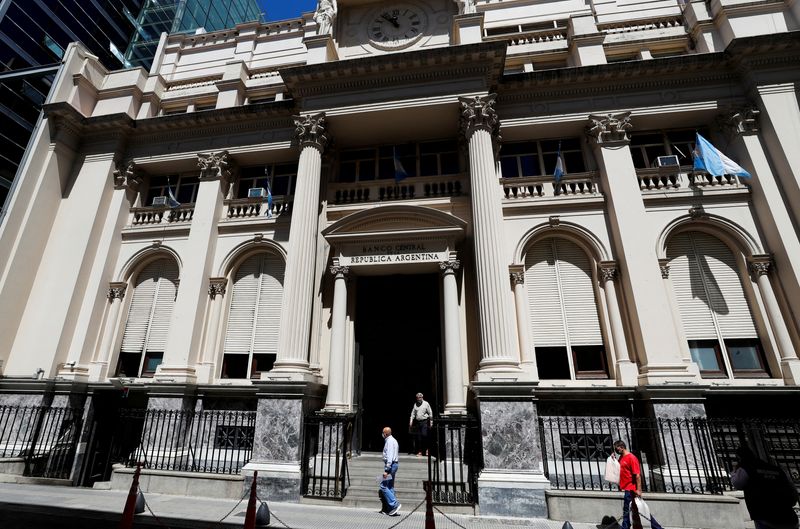By Hernan Nessi
BUENOS AIRES (Reuters) - Argentina's aim to bring monthly inflation down to under 4% by April seems a tough task, according to a poll of analysts by Reuters which estimated a 6% increase in the first month of the year as prices rise annually near 100%.
That rise, if confirmed, would mark an acceleration for prices after a 5.1% bump in December, renewing the challenge for the center-left Peronist government which is battling for political survival ahead of general elections in October.
Argentina has one of the highest inflation rates worldwide, which hurts people's spending power and savings with wage hikes often falling behind prices, something that has hit President Alberto Fernandez hard in public opinion polls.
"Inflation is once again escaping from the parameters that the government was setting and demonstrates the limited ability of (government) price controls," said Lautaro Moschet, a local economist at the Libertad y Progreso Foundation.
"For now there is no theoretical reason to think that inflation will drop, and the uncertainty in an election year may even make the situation worse."
The projections from 20 analysts polled by Reuters ranged from a minimum January rise of 5.2% to a maximum of 6.5%, driven mainly by utilities costs.
"The biggest rise came from the area of housing, electricity, gas and other fuels," said Isaías Marini, economist at consultancy Econviews, adding there had been a notable jump in prices in the populous Buenos Aires metropolitan area.
Argentina economy minister Sergio Massa said in December that his aim was to reach monthly inflation below 4% in April. Private analyst estimates foresee values of around 5% for the first few months of the year.

A central bank poll suggests 2023 inflation could near 100% after ending last year at 95%, the highest since 1991.
The country's official statistics body INDEC is expected to release official January inflation data on Tuesday.